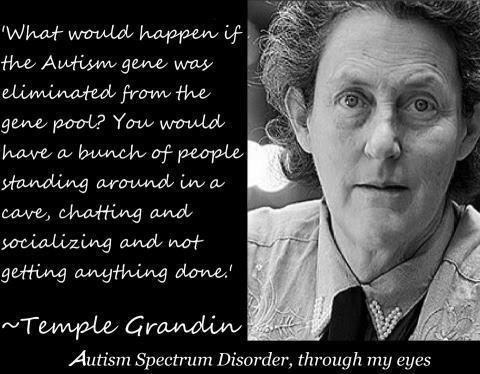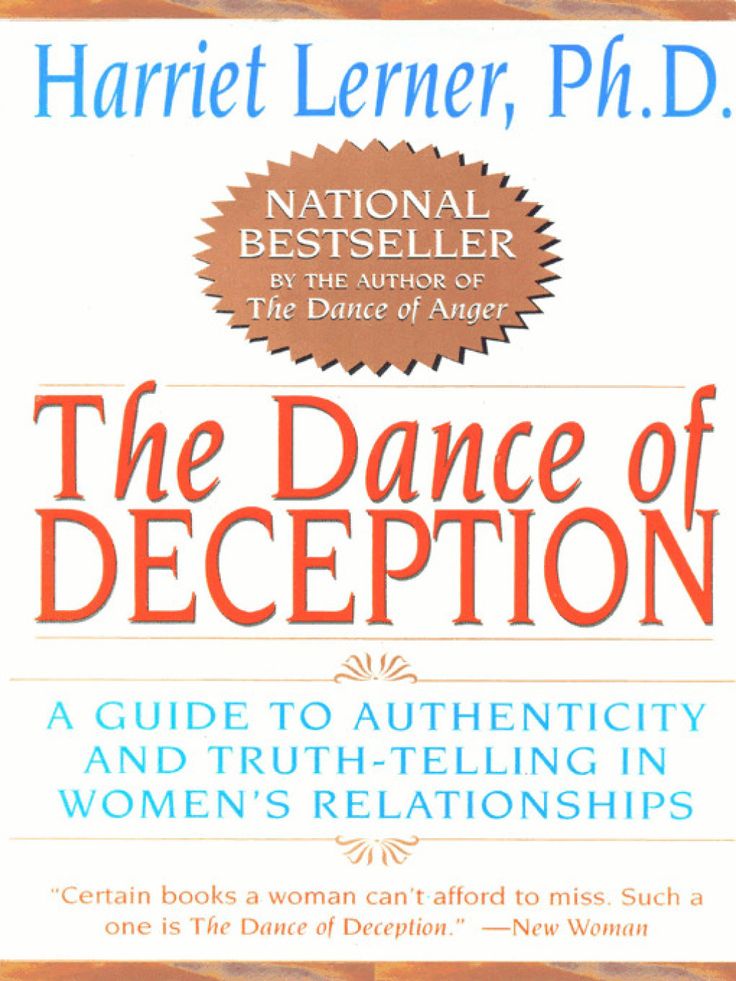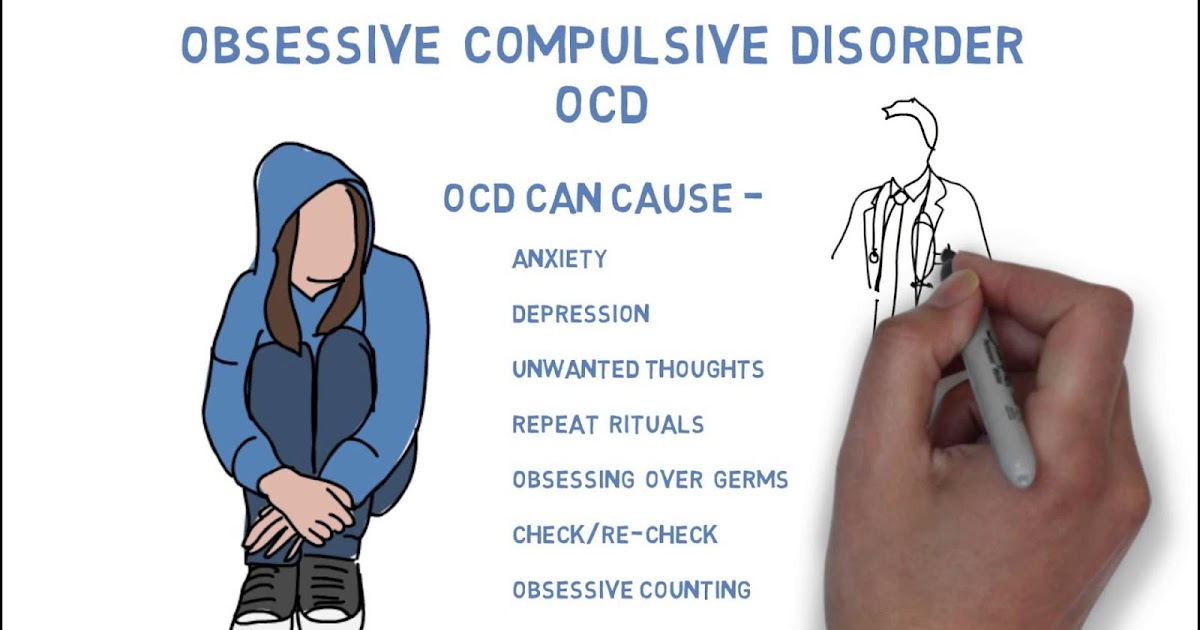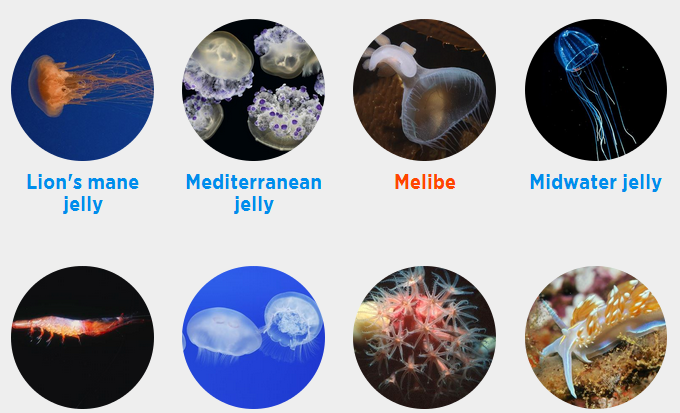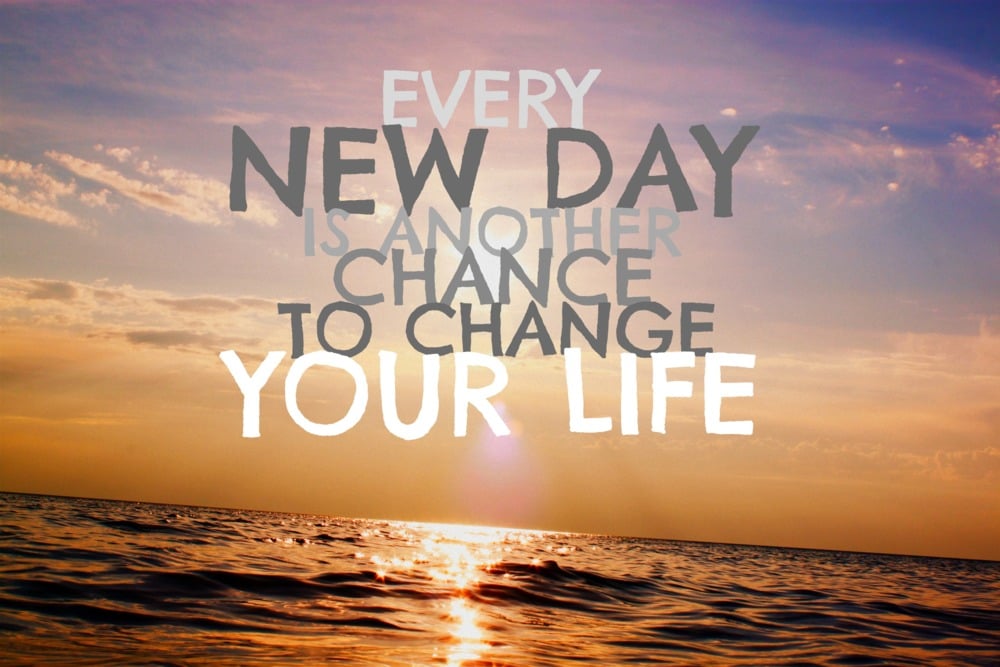Accept and let go
The Freedom of Accepting What Can't Be Changed
“When one door of happiness closes, another opens, but often we look so long at the closed door that we do not see the one that has been opened for us.” ~Helen Keller
Years ago, a friend had a small party for her son’s fifth birthday. I was expecting to spend most of the party talking to the other adults. But that’s not what happened. Instead, at the insistence of my friend’s son, I spent most of the party entertaining him and the other children.
Occasionally, I would escape to the living room to talk to the other adults. But before long my friend’s son would emerge from his bedroom and drag me back to play with him and the other kids.
The truth is that I didn’t mind. In fact, I actually enjoyed the attention. And what happened at the birthday party has been the story of my life. Kids have always been drawn to me, and vice versa.
Children draw out parts of my personality that adults rarely see: my silly side, my creative side, my playful side. I’m an expert at improvising engaging games and activities for children. And of course, I always join in the fun!
And yet, despite the natural affinity that I have for children, for most of my adult life I’ve been indifferent to having my own kids. I’ve seen firsthand from family members and from friends how much responsibility children are. And the truth is that I wasn’t sure if I wanted to take on that responsibility.
My feelings toward having children changed as I got older and entered my forties. I realized that I really did want to start a family and that having a child was my most important goal.
Unfortunately, I have reached a point where I seriously doubt that I will ever achieve my goal of having a child. My forty-seventh birthday is rapidly approaching. And my wife will soon turn thirty-nine.
Granted, we could still become parents. The truth, though, is that I have reservations about having a child at my age, knowing that I’d be responsible for caring for someone into at least my mid sixties. And I worry about what would happen to my child if I were to die when they were still young.
And I worry about what would happen to my child if I were to die when they were still young.
And so I am slowly accepting that I’ll never be a father, that I’ll never hold my child in my arms.
I’m accepting that I’ll never hear my child’s first words, never see them take their first steps.
I’m accepting that I’ll never get to take them to the park, never get to help them with their homework, never get to hold them when they’re going through a tough time.
Chances are, you’re in a position similar to me. Chances are you too need to accept that you’ll never achieve a particular goal or dream that was important to you.
Maybe you also need to accept that you’ll never have a child.
Or perhaps you had a relationship end and you keep chasing after the other person even though they’ve made it clear that the relationship is over.
Or maybe there was a career goal that you haven’t been able to achieve due to a physical limitation.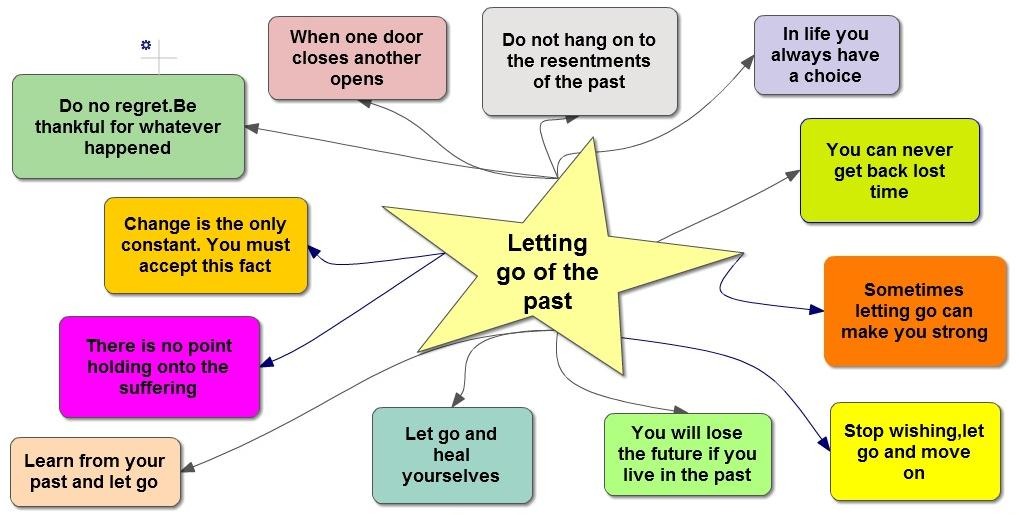
Or perhaps your dream was something else entirely—a financial goal, or a travel goal, or a personal growth goal.
Whatever your situation is, I encourage you to consider what you have to gain from accepting that you may never be able to achieve your dream. Continuing to try to change situations that are outside of our control can lead to anger and bitterness, as well as wasted time and energy.
Meanwhile, learning to accept that we may not achieve some of our goals and dreams has the potential to bring us great freedom. Acceptance frees up our emotional energy and allows us to refocus our time and energy on dreams and goals that are still achievable.
We can and should do our best to go after our goals and dreams. But we need to do so in the spirit of understanding that we may never achieve them. The hard truth is that much of what happens in life is outside of our control, and all we can do is put forth our best effort.
Pursuing our dreams is important. But so is knowing when to step away from one dream and move on to another one.
But so is knowing when to step away from one dream and move on to another one.
If you’re ready to step away from one dream in order to free your heart to pursue a new dream, then here are several techniques that can help:
Have a letting go ceremony.
Schedule a time and place where you will hold a ceremony dedicated to accepting the end of your dream. This might involve lighting candles, saying prayers or meditating, or burning an object that symbolizes your dream. You might even invite certain family members or friends to participate in the ceremony with you.
Focus on gratitude.
Even though you weren’t able to achieve an important goal or dream, you still have much to be grateful for. Keep a regular gratitude journal and continually remind yourself of all the wonderful things in your life. Most importantly, focus your gratitude energy on all the new dreams and opportunities that you now have the time and energy to pursue.
Learn to be compassionate with yourself.

Often, when we’re unable to achieve something that’s important to us, we blame ourselves for our failures instead of understanding that much of what happens in life is outside of our control. Set aside a small amount of time every day for prayer or meditation. During this time, focus your energy both on accepting that you did the best you could under whatever circumstances you faced and that it’s time to let go of your dream.
Use a mantra.
Develop a mantra that you can silently repeat whenever you need to. For example, if you find yourself ruminating over your inability to achieve your dream, you can close your eyes and repeat a simple phrase such as: “I let go and accept.” The key is to use something simple that resonates with you personally.
Learning to accept that you won’t achieve your goal or dream takes time. If you’re committed to the path of acceptance, then be prepared to learn to accept over and over and over again. Meanwhile, the value of what you can gain from acceptance is immeasurable: peace of mind, an open heart, and renewed energy to pursue new goals and dreams.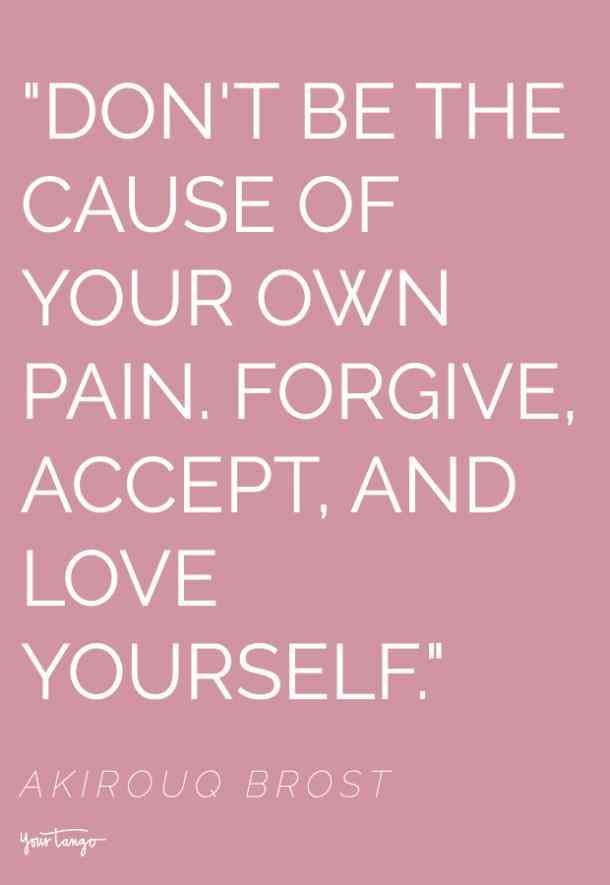
I am learning to accept that I will never become a father. And new doors and new opportunities are opening up around me.
I suggest that you try the same with your goals and dreams that are now outside of your reach, instead of continuing to push against a closed door or holding onto the past. Accept, let go, and walk through one of the new doors that has opened up for you.
Photo by Camdiluv
About Ed Herzog
Ed Herzog is a life coach whose mission is to help people discover an authentic career path – one that allows them to use their talents and passions to make a positive contribution to the world. If you’re searching for an authentic career path, you can start today by downloading his FREE guide: 10 Powerful Questions For Discovering Your Life Purpose.
See a typo or inaccuracy? Please contact us so we can fix it!
To Anyone Who Struggles With “Letting Go” | by Jaimee Ratliff | Personal Growth
A few weeks ago I snapped that photo above, outside of my sister’s house, and shared it on social media.
I captioned it with this quote: “the trees are about to show us how lovely it is to let dead things go.”
The phrase “let it go” used to really irritate me because I didn’t know what it meant or exactly how to do it. And there are times when I still struggle with it a lot.
As an analytical person, I need visual aids and practical steps to help me understand and accomplish things.
It’s the virgo in me.
I prefer finding ways to compare those lofty ideas with things I can really wrap my head around.
In my mind, I connect the act of letting go to that time I was finally able to release both hands from my handlebars while riding my bike. And yes, “letting go” is what happens when I frantically drop a hot pan on the stove after realizing one of the oven mitts has a hole in it.
That’s some serious let go if you’ve never experienced it.
But the kind of letting go that involves a conscious choice versus a physical action, can be extremely challenging and scary.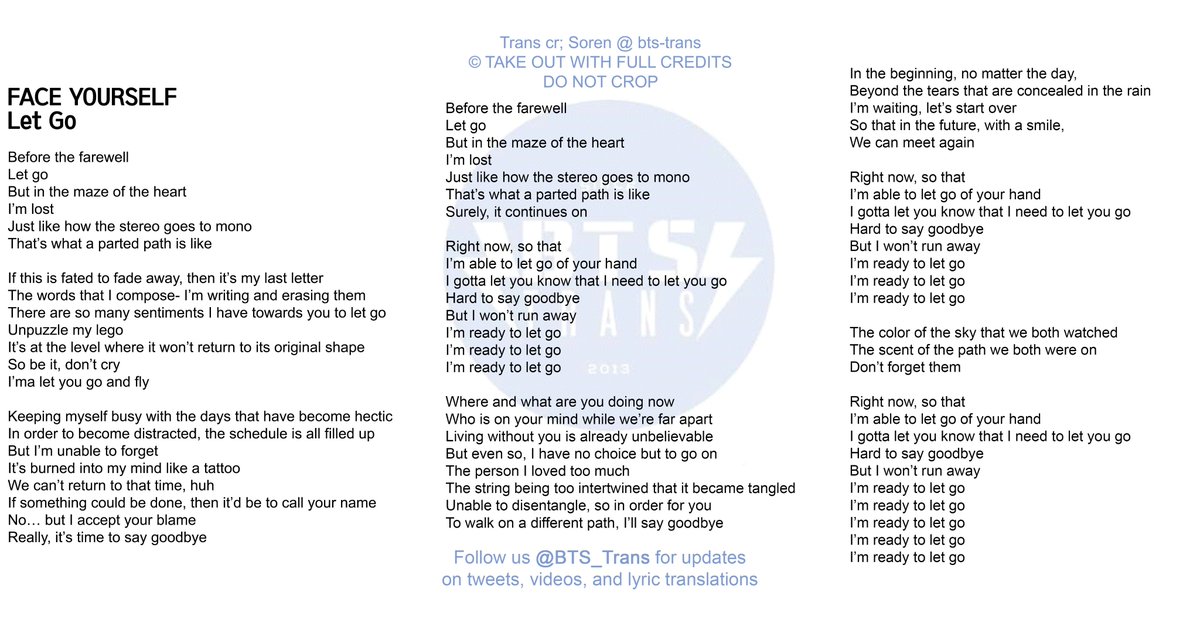 It can also be painful as hell if it’s not something you’re ready to do: especially if your heart and mind are singing two different songs.
It can also be painful as hell if it’s not something you’re ready to do: especially if your heart and mind are singing two different songs.
Letting go in this sense is releasing all doubt, worry, and fear about a situation, person or outcome.
It’s releasing anything that disrupts your happiness and no longer serves you on your journey.
Letting go is a choice to decide that you will no longer ruminate on things that are out of your control, and focus on what you can control, instead.
Letting go creates space for fresh beginnings: stripping you of what happened yesterday, and enabling the doors of brand new opportunities to open today.
Letting go is about accepting what is happening right now and not worrying about what will come up tomorrow.
It involves much more than just saying you have let go. It’s an internal process that must happen for you to truly feel better and get on with life in a healthy way.
Throughout this year, I’ve been having lots of conversations with people and reading an assortment of spiritual books on exactly how to let go. I’ve come up with these five steps that helps me better understand how to do this thing and could possibly help you too:
I’ve come up with these five steps that helps me better understand how to do this thing and could possibly help you too:
As a gentle reminder, it’s important that we honor where we are on our individual journeys of letting go. This is a process that may be more challenging for some than others. Know that wherever you are right now, is okay.
1) Mind control — The human mind is the most complex tool we own and can either be our biggest ally or worst enemy. Having the power to let things go starts there. Making an intentional choice to no longer let past issues and people who hurt us control the mind is what can break the cycle of unhealthy rumination on these thoughts, ideas and feelings.
For me, what ends up happening when I let my mind go down the dark road of rehearsing painful experiences is I began to create a story about myself that typically follows the lines of “I’m not good enough”, “I’m unlovable” and “no one cares about me”. The more I think about it, the more my mind creates space to allow feelings of hurt, anger and frustration to fester and completely ruin my mood.
Although I’m still working on this, it’s important to constantly be in observance of your thoughts without attaching yourself to what it is you’re thinking.
The reality is your thoughts don’t define your value. You are not the summation of your past experiences. Just because something doesn’t work out, doesn’t mean you are now labeled as a failure or you’re incapable of receiving what you desire in life.
The more we can simply watch our thoughts come and go without attaching our identity to them, the easier letting go becomes.
Thoughts are nothing more than thoughts. What we decide to do with them is what can either make or break us.
2) Getting it all out — Having the ability to express your emotions in a healthy way is another step to processing things before deciding to let them go. As a writer, this is also a must for me because it serves as a form of catharsis and creative release. I like to spend time journaling out my thoughts and emotions.
While obsessing over the details of what happened in the past is never the healthy route to take (we all do it), it’s important to analyze why you’re feeling a certain way, and how you can show up differently the next time.
There are so many breakthroughs to uncover through self reflection. Other ways to express yourself include talking to a trusted friend, family member or therapist. I have discovered that seeking out counseling is one of the best ways to receive objective advice and support throughout my journey of healing and learning to let go.
Sometimes, friends and family sit so close to a particular situation that they’re unable to provide unbiased support the way in which you need it. And, sometimes they don’t always offer the best advice. Sometimes it’s not always that easy to let something go. Especially if there are old narratives that are lodged somewhere in your subconscious mind from previous experiences.
When we continue holding on to grief, anxiety, pain, and resentment from the past without fully working through each situation, all of these experiences, patterns, and narratives accumulate inside the heart, making it even more difficult to let things go. When this is the case, it’s so important to seek out therapy to help you work through and heal from the inside out.
When this is the case, it’s so important to seek out therapy to help you work through and heal from the inside out.
3) Acceptance — We all want to know why something ended the way it did or how someone could end up hurting us so badly without having any concern about how it negatively impacted us.
We believe that we deserve the right to these answers. We want some level of understanding. The painful truth is, we don’t always get that “closure” we think we ought to have.
Not everyone will explain why they did something or even apologize when they are at fault. And I know firsthand that this reality stings a lot. Like someone pouring salt in an open wound.
Not getting solid answers and having to move on with life without closure is no fun, but it’s something many of us have to do at one point or another.
Fully accepting the situation as it is without constantly wishing it would be different is really the only way to getting on the road to being okay. And this isn’t only about accepting situations. We have to start accepting people for who they are as well and believing them when they show us their true character. Because they aren’t lying.
And this isn’t only about accepting situations. We have to start accepting people for who they are as well and believing them when they show us their true character. Because they aren’t lying.
4) Forgiveness — To truly let go and move on, sometimes you have to forgive people who aren’t even sorry. Sometimes you have to accept an apology you’ll never receive. That takes so much strength and courage and humility. While it may seem unfair and backwards, sometimes, that’s how the chips will fall.
There’s nothing worse than holding onto resentment about someone or something for years, while they happily move on with life. And the reality is, doing this only hurts you. The most important thing is that we also have to learn to forgive ourselves.
This can be done by writing a letter to yourself, replacing self-loathing with compassion, and deciding to make better choices next time.
5) Stay present — The present is all we have. We can’t go back and fix the past, and what happens in the future isn’t here yet. We must make an effort everyday to remember that and allow ourselves to open up and enjoy what is unfolding right in front of us: all parts of the journey both easy and hard, good and bad.
We can’t go back and fix the past, and what happens in the future isn’t here yet. We must make an effort everyday to remember that and allow ourselves to open up and enjoy what is unfolding right in front of us: all parts of the journey both easy and hard, good and bad.
A friend of mine once said to me “you are right where you are supposed to be”, in the midst of a very rough season. My initial reaction back to that was filled with frustration and confusion.
I didn’t want to accept the fact that he was probably right. Because life is full of so many teachers and lessons. Sometimes you will be the teacher, and other times you will be forced to learn a hard lesson.
This year has found me in the role of the student on so many occasions: pushing and encouraging me to let go of old narratives and painful pasts.
This year has inspired me to work harder at letting go of self-loathing, insecurities, hurtful people, unrealistic expectations and timelines, comparing myself to others, and obsessively worrying about things far beyond my control.
I owe it to myself to be more kind to me.
Everyday, I am consistently reminded to embrace the present and all it has to offer: a new opportunity to begin again. No matter how much I may stumble on this journey of letting go, the present is always here to remind me that I don’t have to stay stuck on yesterday, or worry about what will happen tomorrow.
I trust that this opportunity is open for you to receive it too.
Everyday we have a choice to keep holding on just a little bit longer, or conclude that today is the day we will finally let go.
Originally published at ThisWayNorth.net. For more inspiration, connect with Jaimee on Instagram, Facebook, Twitter, and YouTube.
How to accept and let go of your past
December 13, 2022 Inspiration
Everything we resist has power over us. And whatever we accept sets us free.
And whatever we accept sets us free.
Srinivas Rao
Founder of The Unmistakable Creative podcast and author of books on creativity.
Do not fight disappointment and pain
We often seek answers to our questions outside: in books and podcasts, in trainings and seminars, from mentors and spiritual teachers. But this does not always help to understand your aspirations, and sooner or later you need to look inside yourself.
Inevitably, disappointments and painful memories will surface. You want to run away from them, but you have to look them in the face. And then you will notice such a paradox: the more you fight with pain, the more you give it strength. And when you finally let go of this struggle, it becomes easier.
It's rather difficult. The need to give up is contrary to everything that we are constantly taught: to strive, to push, to endure, to win. But when we give up, we find peace and find inspiration. And this is not the same as resigning and falling into apathy.
When you let go of the desperate desire to change the situation, you finally become free.
And you can live a meaningful life only in this state of freedom and self-expression without excuses. Realize that frustration and pain are a natural part of life. Don't be afraid of them. Yes, you can get your heart broken, you can get fired from your job, your creative project can fail.
But what you learn in the process will help you grow into a different person. The only way to avoid disappointment is to never take risks. But it will be a very limited life.
Find something good in the past
Usually, when we remember bad experiences from the past, such as a relationship that didn't work out or a lost job, we focus on the bad and ignore the good. We carry this negativity with us, and the future becomes like the past. But if you acknowledge what happened and learn from it, his power over you will dissipate.
So self-help books advise you to write something nice about every person who has left you. And this advice can be applied to any painful circumstance. Write down what you learned from the situation, what you learned, what you learned about yourself. And you will see that, despite the pain caused, others present us with amazing gifts.
And this advice can be applied to any painful circumstance. Write down what you learned from the situation, what you learned, what you learned about yourself. And you will see that, despite the pain caused, others present us with amazing gifts.
Without the bosses who once fired me, I wouldn't be a writer today. One girl I dated taught me how to cook, another taught me how to dress better. Yes, we didn't make it. But that doesn't mean it wasn't good.
When we accept a difficult situation or let go of the feeling of resentment towards the person who hurt us, negative impressions lose their power over us and our future.
Help yourself readjust
By letting go of the past, you create space for a new future. And clinging to the old negativity, you are likely to repeat the same mistakes. I understand that in reality it is more difficult than in words. Especially when you have just recovered from pain or are still trying to weather the storm in your own life.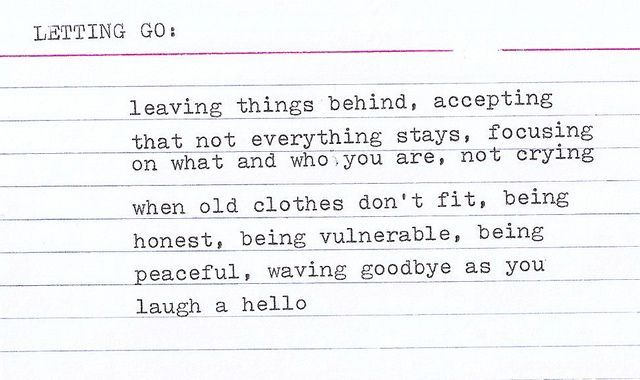 Therefore, I will give a few tips that help me:
Therefore, I will give a few tips that help me:
- Learn to be grateful. This will not solve all problems, but it will help change the mood. You will notice the good things in life that you usually take for granted.
- Change your environment. It has a very strong influence on feelings and behavior. It is not necessary to burn everything that is connected with the past (although sometimes you want to) . Let your environment represent everything that you want to become, and not what you were before.
- Talk to a therapist. I think this should be done at least once in a lifetime. A psychotherapist is a coach, not only for the body, but for the mind. It will help you notice repeating patterns in your life. And he is also objective, you can tell him about everything, knowing that he will not judge.
- Take care of yourself. Treat yourself to something nice to close one chapter of life and start another.
 And regularly take care of your mental balance. For example, go in for sports, travel, start new hobbies.
And regularly take care of your mental balance. For example, go in for sports, travel, start new hobbies.
Imagine what opportunities you might have
Each event has three scenarios:
- The one we imagined.
- The one that is now.
- The one that can be.
When reality doesn't match our assumptions, we get upset. We close ourselves to all other possibilities and try to fulfill unfulfilled expectations. However, in such a situation, you need to accept the third scenario - uncertainty. We usually associate it with fear, anxiety, and our worst fears. And we do not notice the amazing thing that can also happen.
Most often, understanding comes only when we look back.
I remember feeling like I was in a dire situation in terms of my career: graduating from university in the midst of the global economic crisis, not getting a job after my summer internship. But it was this that prompted me to start what later became the basis of my podcast.
I started writing as a freelancer, but in 2013 I was rejected by those with whom I collaborated. I freed up time, and soon I published my first book myself. It became a bestseller, and eventually I got an offer from the publisher.
Thanks to these events, I was saved from a job where you have to write about things that you don't care about. Of course, at first, such turns are frustrating and scary. But try to look at them as opportunities, not losses.
Read also 🧐
- 20 reasons not to give up on the way to your goal even in the most difficult moments
- How to change the past without the help of a time machine
- “It used to be better”: how fixation on the past harms the future
How to let go of the situation and bring harmony back into your life
Anita Dmitrieva, master of short-term systemic psychotherapy, practical psychologist, author of trainings and seminars, tells.
Dead ends arise in our lives all the time. We are haunted by economic storms, environmental disasters, and every day there is a chance to meet at least one of almost eight billion natural phenomena. Each with their own beliefs, plans, preferences and desires, at different ages and moods.
We are haunted by economic storms, environmental disasters, and every day there is a chance to meet at least one of almost eight billion natural phenomena. Each with their own beliefs, plans, preferences and desires, at different ages and moods.
Expectations are at odds with reality.
Something went wrong.
The situation is out of control.
Hopes were not justified.
The result obtained differs from the original goal.
Familiar situations?
Any of these evokes negative emotions, at least impotence and irritation, and at the most – anger. At such moments, you dream that all this will end or change immediately. And you definitely want to stop worrying. And thoughts are constantly spinning in the same plane, without any hope of changing the plate. And generous imagination, being in uncertainty, paints pictures of consequences. One is grander than the other.
How can one be confident in something and maintain psychological stability in such an environment?
There are effective ways to let go of the situation, start a new report and get out of the swamp of worry and anxiety.
Consider the 4 stages of parting with the problem.
Stage 1. Accept reality.
Just because something exists doesn't mean that it has to please you, be fair or unfair. But that also doesn't mean you won't try to change things. You need to realize the limitations of your own strengths and capabilities and find out what depends on you personally and what you cannot influence.
Write an accurate factual description of the situation. Determine your responsibilities, competencies, abilities, information that you possess. If the situation is related to someone else, then share responsibility for the result with him. You cannot be responsible for the choices, decisions, or actions of another person unless it is your young child.
Stage 2. Acknowledge your negative emotions and respond to them in a socially acceptable way.
State the feelings you have about the situation. Such certainty will immediately bring relief. Use art therapy (especially plasticine and paints), music therapy, dancing. If necessary, throw out anger and irritation, do not spare soft toys and pillows - your nervous system will be grateful to you.
Use art therapy (especially plasticine and paints), music therapy, dancing. If necessary, throw out anger and irritation, do not spare soft toys and pillows - your nervous system will be grateful to you.
Stage 3. Learn to deal with anxious thoughts.
- accept uncertainty
You can't know anything for sure. Uncertainty is in everything that surrounds us, except for what we personally can influence.
Useful exercise : filling with uncertainty. Repeat to yourself phrases that characterize the unpredictable reality around you. In any sequence and options that are closest to you. For example:
“I’m not sure about her decision”
“I don’t know how things will turn out”
“I can’t predict the weather and the dollar”
“I’m not responsible for my boss’s mood”
“Totally incomprehensible how long the crisis will last”
Do it every day, at the same time, without breaks and days off, for at least 15 minutes (according to the alarm clock) for at least two weeks in a row.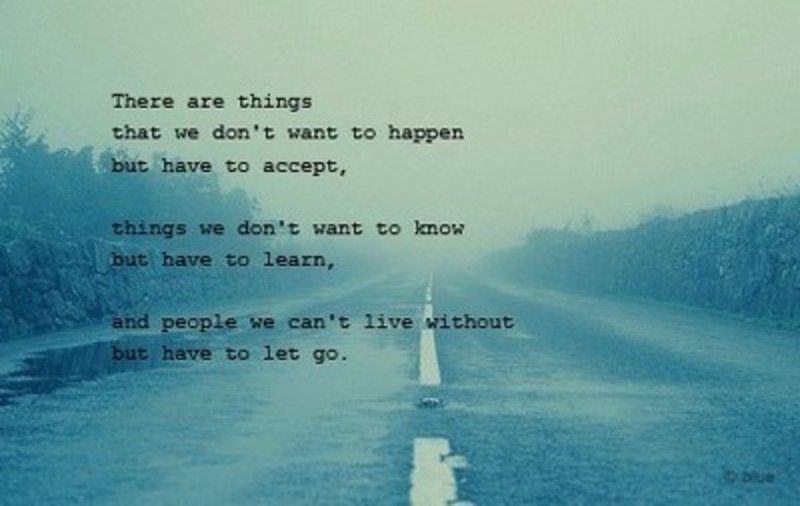
Through this exercise, you will get used to the fact that everything around you is full of uncertainty, you will make less demands on everyone and everything that surrounds you and begin to enjoy pleasant surprises.
- do not predict the future if it depends not only on you
Catch yourself thinking: "I predict the future" and return to the present for action.
- do not guess other people's thoughts
They may turn out to be completely unexpected. Check, all attempts at predictions may be in vain. Trust only the obvious facts.
- do not think about troubles and your reaction to them
Everything may or may not happen with an indeterminate probability.
- don't be fascinated so as not to be disappointed
Our expectations and interpretations cannot be taken as reliable reality. After all, the perception of events by one person is not at all a fact for another. Take into account only what can be objectively verified or proven.
- use relaxation techniques.
Stage 4. Find advantages and new opportunities.
The situation may seem like a disaster. However, in each failure there is only a fraction of the loss, the rest is experience, conclusions, prospects and opportunities. Thank those who gave you this knowledge and skills. Even if bitterness makes you wipe your tears, you may have been saved from big problems. Thank yourself for the effort you put into the solution. Don't devalue your work. Look for achievements.
Provide yourself with an emotional resource. Find and write down all the positives and benefits that you have received or see in the situation. Everything you find will evoke positive emotions in you, keep you from falling into despondency and become your emotional support in the future.
Mentally consult with your best friend, a look from the outside can open up even more options for positive emotions.
Be consistent and rational on your way to harmony.





